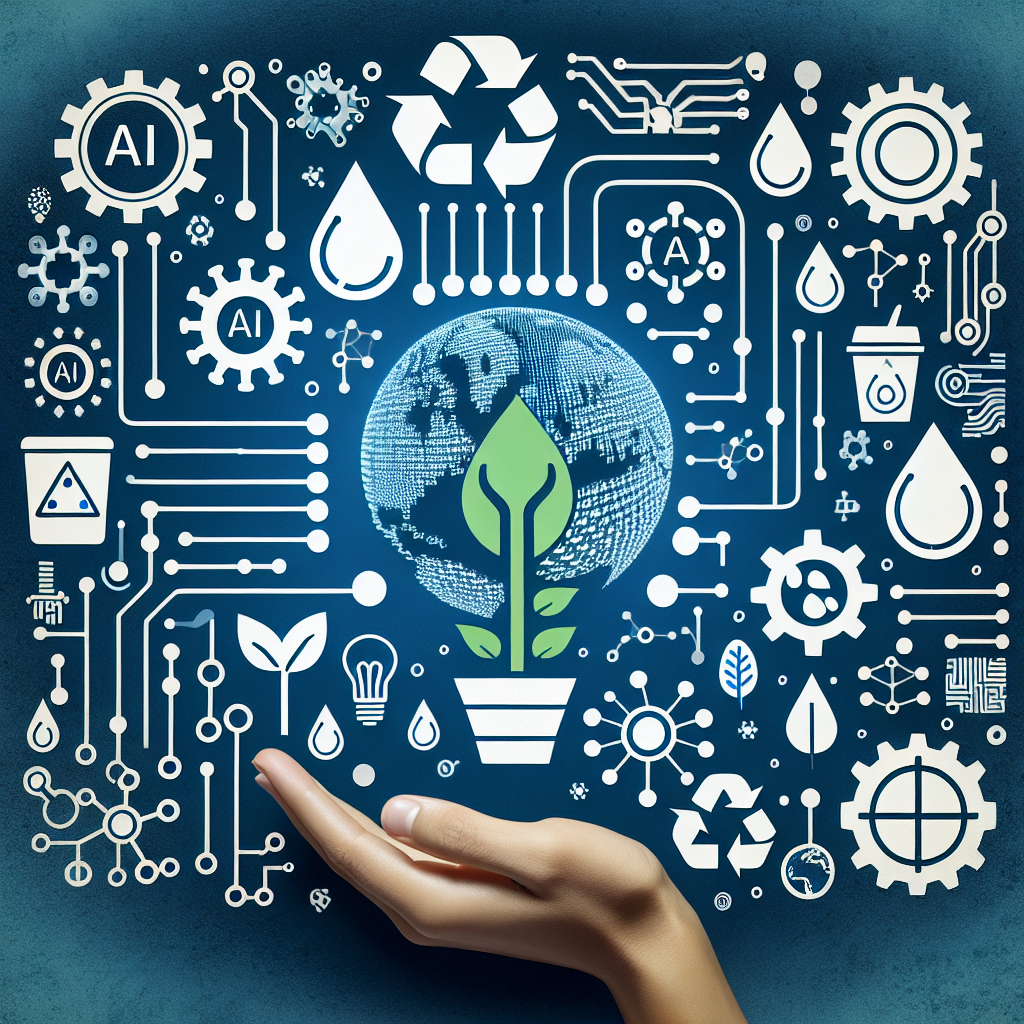AI-driven solutions are revolutionizing the way we manage our water resources, offering a more efficient and sustainable approach to water management. With the increasing global population and climate change putting pressure on water supplies, it has become more important than ever to find innovative solutions to ensure the availability of clean water for future generations. AI technology can help us better understand and optimize water usage, detect leaks and pollution, and improve water quality, ultimately leading to a more sustainable water management system.
One of the key advantages of using AI in water management is its ability to analyze large amounts of data in real-time. This allows water managers to make more informed decisions and quickly respond to changes in the water system. For example, AI can help predict water demand based on factors such as weather patterns, population growth, and infrastructure needs. By accurately forecasting water demand, water utilities can better plan and allocate resources to meet the needs of their customers.
AI can also be used to detect leaks in the water distribution system. By analyzing data from sensors and meters, AI algorithms can identify patterns that indicate a leak or potential problem in the system. This early detection can help prevent water loss and reduce the need for costly repairs. In addition, AI can help optimize the maintenance of water infrastructure by predicting when equipment is likely to fail and scheduling maintenance accordingly.
Another important application of AI in water management is in monitoring water quality. AI algorithms can analyze data from sensors and water samples to detect contaminants and pollutants in the water supply. By quickly identifying potential threats to water quality, water managers can take action to address the issue before it becomes a larger problem. This proactive approach can help protect public health and ensure that water remains safe for consumption.
In addition to these direct applications, AI can also be used to improve the efficiency of water treatment plants. By optimizing the operation of treatment processes, AI can help reduce energy consumption, minimize waste, and improve overall water quality. AI-driven solutions can also help water utilities better manage their resources, such as chemicals and energy, to reduce costs and environmental impact.
Overall, AI-driven solutions offer a powerful tool for sustainable water management. By harnessing the power of AI technology, water managers can make smarter decisions, optimize resource allocation, and improve the overall efficiency of water systems. With the increasing challenges posed by climate change and population growth, AI-driven solutions are essential for ensuring the long-term sustainability of our water resources.
FAQs:
Q: How does AI help in predicting water demand?
A: AI algorithms can analyze a variety of data sources, such as weather patterns, population growth, and historical usage data, to predict water demand accurately. By incorporating these factors into predictive models, water managers can better anticipate fluctuations in demand and plan accordingly.
Q: How does AI detect leaks in the water distribution system?
A: AI algorithms can analyze data from sensors and meters in the water distribution system to identify patterns that indicate a leak. By comparing current data to historical trends, AI can detect anomalies that may signal a leak or other problem in the system.
Q: Can AI help in monitoring water quality?
A: Yes, AI algorithms can analyze data from sensors and water samples to detect contaminants and pollutants in the water supply. By quickly identifying potential threats to water quality, water managers can take action to address the issue before it becomes a larger problem.
Q: How can AI optimize the operation of water treatment plants?
A: AI can optimize the operation of water treatment plants by analyzing data from sensors and equipment to identify ways to improve efficiency and reduce costs. By optimizing treatment processes, AI can help reduce energy consumption, minimize waste, and improve overall water quality.
Q: Are AI-driven solutions cost-effective for water utilities?
A: While there may be upfront costs associated with implementing AI-driven solutions, the long-term benefits in terms of improved efficiency, reduced costs, and better resource management can make them cost-effective for water utilities in the long run. Additionally, the potential savings from early leak detection and improved water quality can outweigh the initial investment.

